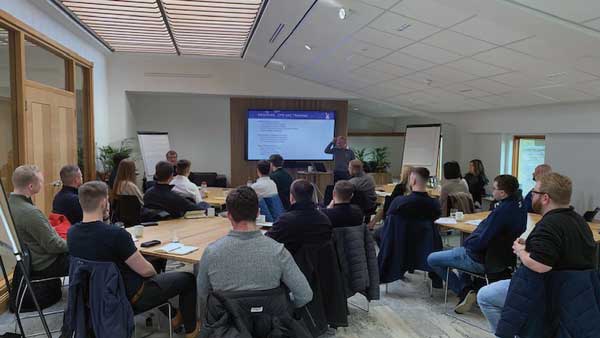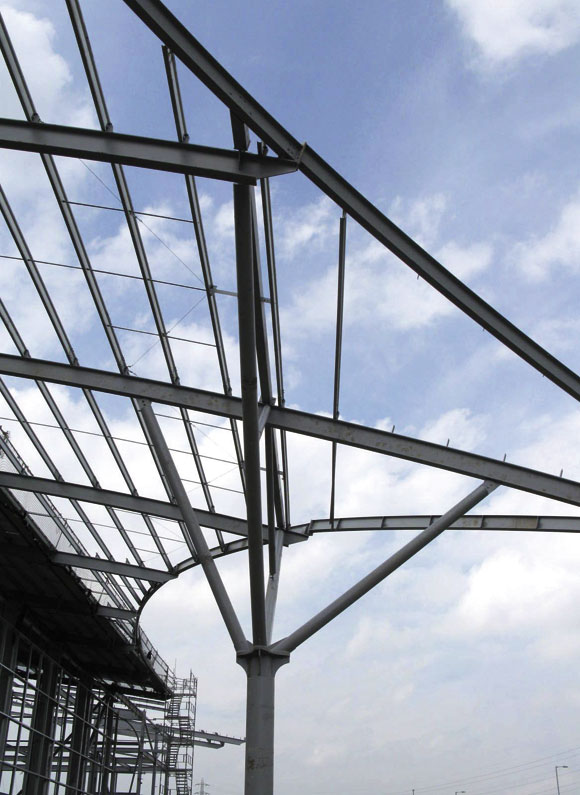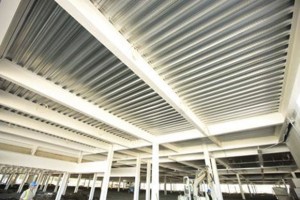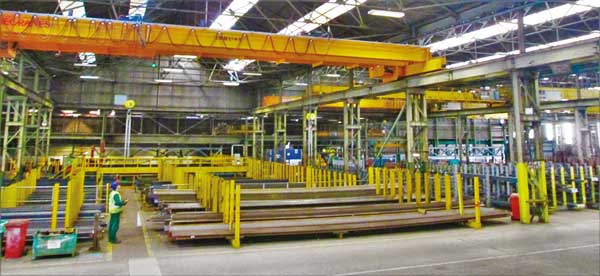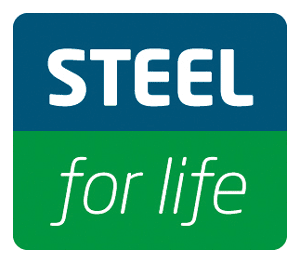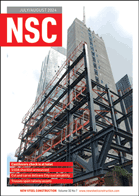Technical
Adapting to a changing market place
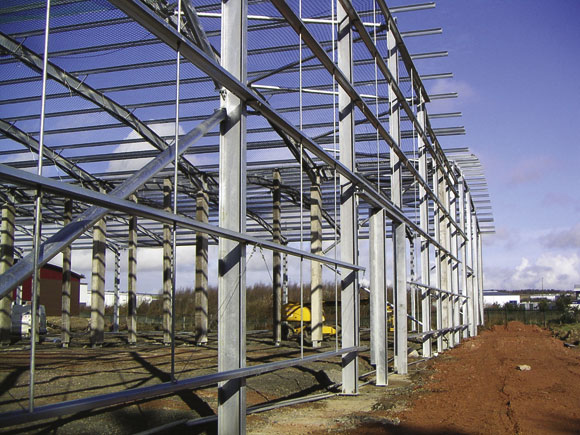
Lightweight steel products are suitable for a variety of steel projects including refurbishment jobs
In the second article in our Steel Supply Chain series, NSC examines the role of light gauge and floor decking manufacturers and the crucial part they play in the UK steel construction market.
Lightweight cold formed steel products are vital components for the majority of steel construction projects. Whether it is purlins, rails, walling, channel systems or floor decking systems, these products are ideally suited for most commercial and industrial applications, while a number of them have also been specifically designed for refurbishment applications. Lightweight structural products are used substantially in the steel frame, modular and refurbishment sectors and consequently they also have a high market share.
Floor decking
Most manufacturers of these products predominantly concentrate on either decking or a range of cold formed products. Supplying floor decking is something of a captive market, because although the products are used on all steel construction projects, there are only a handful of contractors which specialise in installing it. Most steel contractors will undertake decking as part of their overall steel package, but in reality they will often sub-contract the task out to a specialist.
On the manufacturing side of the sector, there are also not that many producers of decking and consequently they usually supply exclusively to one of the specialist installers.
Producers of floor metal decking also supply literature and software, free of charge, aimed at designers and explaining how to decide what the best option and product for their project is. Producers also actively study the market to find out what changes are afoot and what product updates are needed.
Environmental and health and safety legislation also plays an important role in new product design. Manufacturers of floor decking are no different from producers of any other product, in so far as they must adapt to an ever changing world.
Decking manufacturers also deliver their products to site for the installer to fix and erect. On a busy and often congested site, it is imperative that the correct amount is delivered, on time and to the right place.
Computer software is now playing an important role in ordering products. Most repeat customers will have access to a preferred manufacturers electronic order book which not only speeds up ordering but also ensures the exact amount and correct product is coming off the production line as soon as possible.
Another important service provided is the fact that manufacturers all have a team of sales managers on the road, visiting existing customers and also offering advice to designers that have not used their product as yet.
Advice on what product is best suited for an up and coming project is also available by either calling the manufacturer directly and asking for the sales department, or via a company’s website.
Light gauge products
The light gauge sector is supported by a handful of UK based manufacturers. The difference here, compared to the decking market, is that these companies primarily sell direct to steelwork contractors. This is because purlins, rails and other cold formed items are part and parcel of a steelwork contractors erection programme.
Steelwork contractors may sub-contract out the erection process, but cold formed steelwork is invariably part of their overall erection package, the same as all the heavier structural steel members. Consequently it is the steelwork contractors that hold sway over this market sector as they decide what products are needed and when.
Repeat business is also widely seen as one of the most important aspects of the sector. Every manufacturer will ensure that every order is on time and consists of the correct sizes and product quantity, as return business means more business and makes for a healthy order book.
The UK steel construction industry is highly developed in the use of computer aided design and detailing methods. Drawings and details are increasingly transferred electronically between the steelwork contractor and the manufacturing site. The specific details of each component part of a structure is created through the use of CAD systems and fed through to the production line. This is a very fast and accurate system in an industry that is persistently looking for ways of reducing the build programme.
Light gauge steel products also form an integral part of the supply chain as they are often the last steel members to be fitted and so form the final part of an erection programme. On time delivery is therefore vitally important to ensure a project is on time and a customer – in this instance a steelwork contractor – is pleased and happy to use the producer’s services again.
Recognition is given to the following companies which are supporting the BCSA/Corus steel construction market development programme. Light gauge and decking manufacturers:
- Albion Sections
- Composite Profiles UK
- Hi Span
- Kingspan Structural Products
- Metsec
- MSW Structural Floor Systems
- Richard Lees Steel Decking
- Structural Metal Decks
- Structural Sections
- Studwelders
Fire testing
Recent fire testing has also proven how safe these products are. Light steel load-bearing frames are widely used in buildings of up to eight storeys for which longer periods of fire resistance are increasingly required. It is important that the light steel and modular industries have economic solutions for load-bearing floors and walls to achieve fire and acoustic requirements to meet new regulations and modern design and test standards.
The introduction of the BS EN 1365 fire test regime has required an extensive programme of re-testing, as it is more severe than its predecessor due to the use of plate thermocouples. This is particularly important for 90 minutes fire resistance.
A recent fire test at the Building Research Establishment supported the applied load for 93 minutes, although the designated failure of the test was at 92 minutes in terms of the integrity criterion. Importantly, for the steel joists, their temperature remained at less than 100°C for over 80 minutes and so the joists would be essentially undamaged and re-usable, even after a severe fire. At 90 minutes, the joist temperature reached 280°C, at which point the furnace temperature was over 1,000°C. The mean temperature of the upper surface was less than 60°C, which was well within the 140°C limit for the BS EN test.
(All photography courtesy of Kingspan Structural Products)







